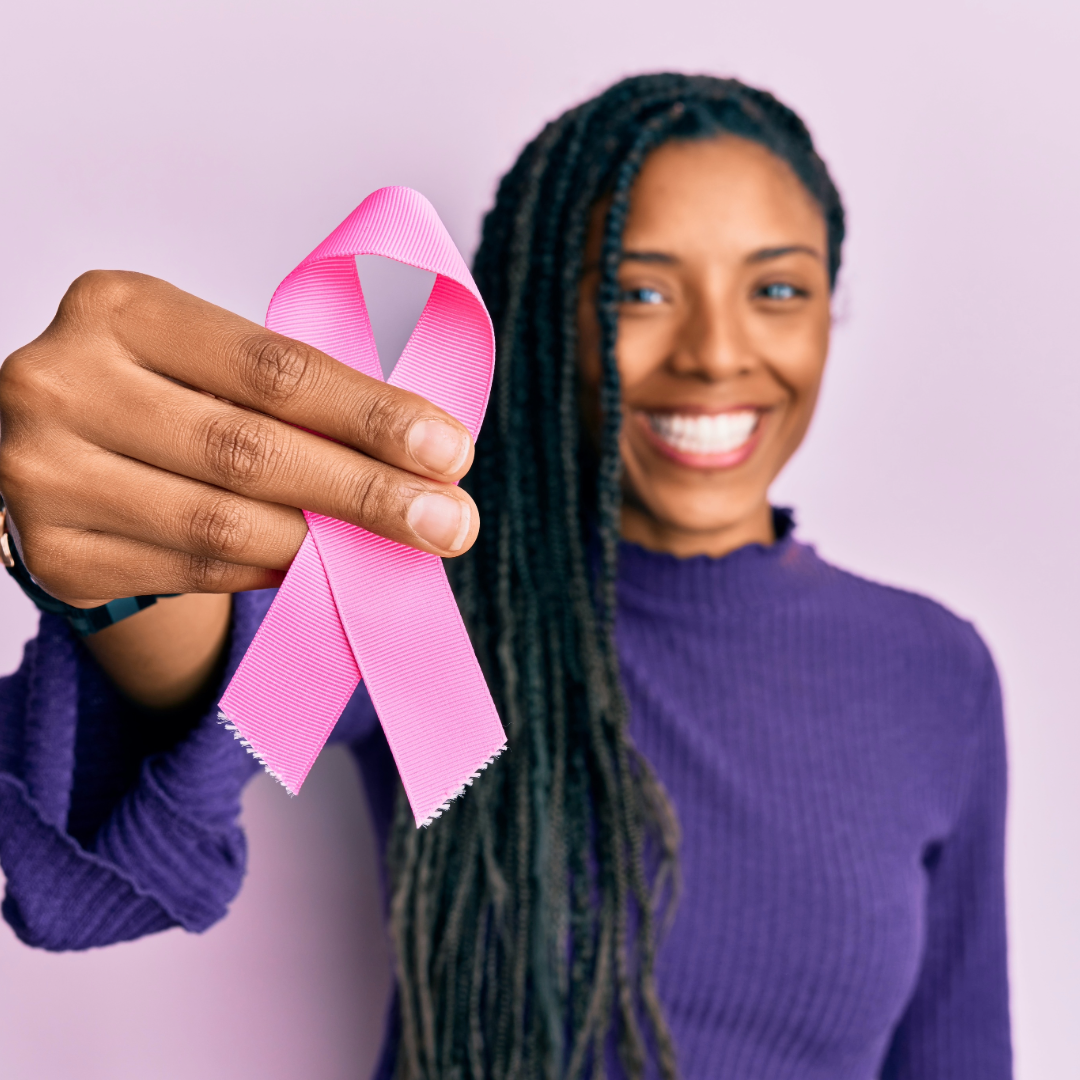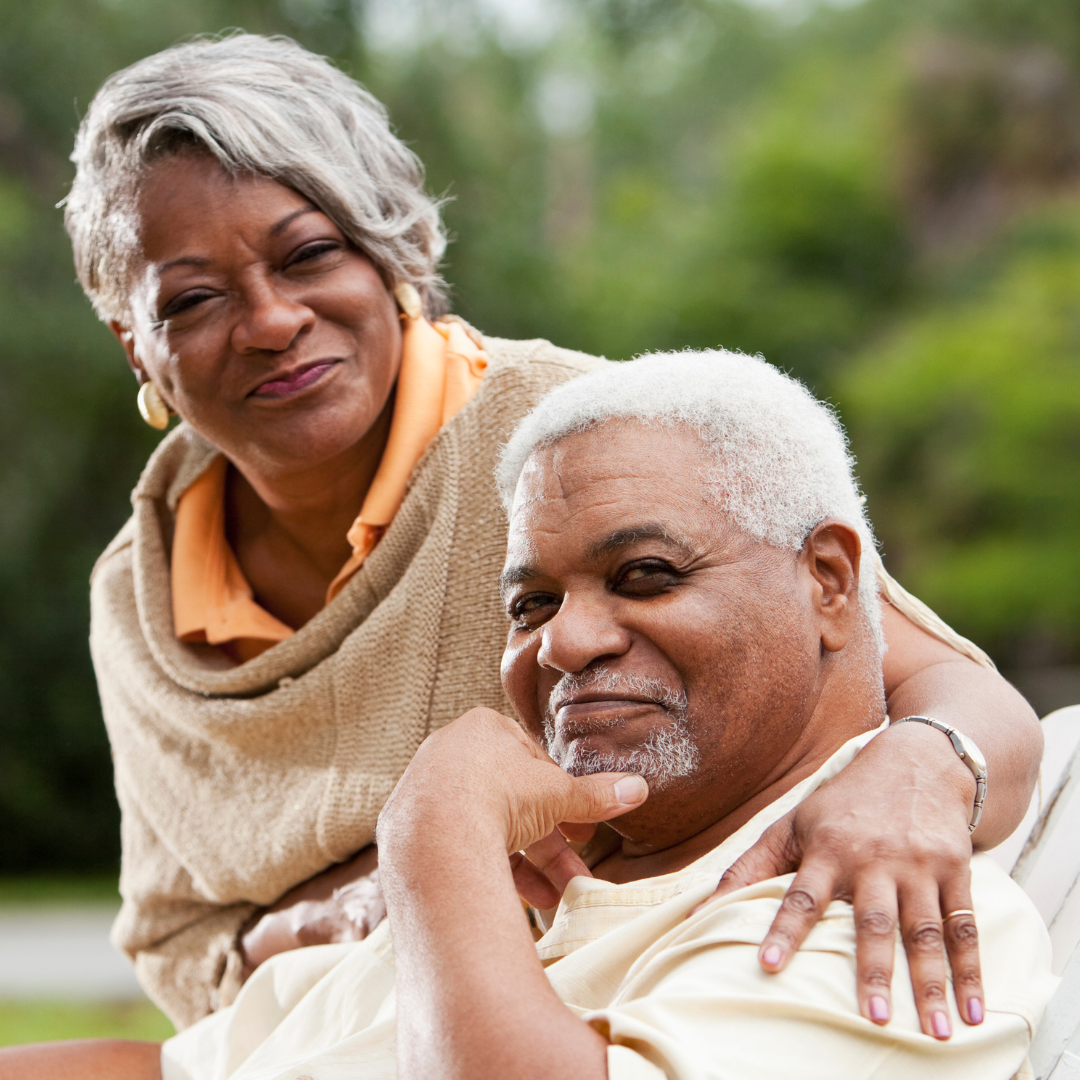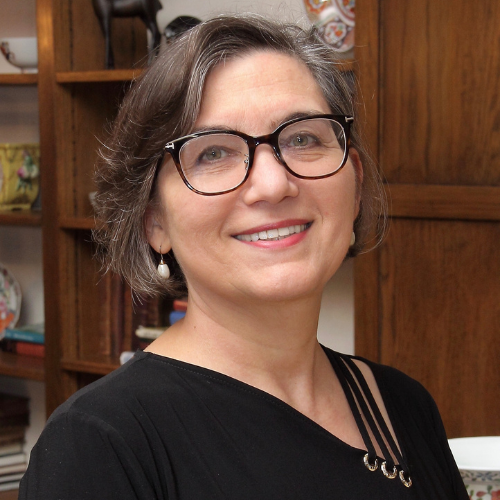-
2022 Vilcek-Gold Award for Humanism in Healthcare Bestowed on Health Equity Leader Dr. Mona Fouad
 New York, NY, June 1, 2022 — The Vilcek Foundation and The Arnold P. Gold Foundation are pleased to announce that the 2022 Vilcek-Gold Award for Humanism in Healthcare will be presented to Dr. Mona Fouad, MD, MPH.
New York, NY, June 1, 2022 — The Vilcek Foundation and The Arnold P. Gold Foundation are pleased to announce that the 2022 Vilcek-Gold Award for Humanism in Healthcare will be presented to Dr. Mona Fouad, MD, MPH. -
2023 UAB Health Equity Research Symposium Recap

The 2023 UAB Health Equity Research Symposium, "Turning the Vision of Health Equity into Reality," was held at the Birmingham Hilton at UAB on April 20th. The event brought together over 200 researchers, practitioners, students, and community partners to address several themes surrounding health disparities and health equity.
-
Annual MHERC health equity symposium to highlight community engaged research strategies
 The University of Alabama at Birmingham’s Minority Health & Health Equity Research Center will hold its annual UAB Health Equity Research Symposium. The symposium highlights the work of undergraduate, graduate, post-doctoral and faculty investigators in clinical, behavioral, social, and community-based research related to health equity and health disparities.
The University of Alabama at Birmingham’s Minority Health & Health Equity Research Center will hold its annual UAB Health Equity Research Symposium. The symposium highlights the work of undergraduate, graduate, post-doctoral and faculty investigators in clinical, behavioral, social, and community-based research related to health equity and health disparities. -
Breaking Barriers: Addressing Cancer Disparities in the Deep South
 For Angela Williams, it’s personal.
For Angela Williams, it’s personal.In a span of two weeks in July 1991, Williams lost both her parents to cancer. Ten years later, cancer took her sister.
Not the kind to sit idle, she reached out to programs overseen by the University of Alabama at Birmingham Minority Health & Health Equity Research Center (MHERC) and the UAB O’Neal Comprehensive Cancer Center called REACH 2010 and the Deep South Network for Cancer Control. Its mission was, to engage with communities in addressing the disproportionate number of Black people who die from cancer.
-
Building Health and Community: The Impact of REACH Up and Out Program for African American Women in Alabama's Black Belt
 Developed by the University of Alabama at Birmingham’s Minority Health & Health Equity Research Center (MHERC), REACH Up and Out is a five-week program designed to provide African-American women with the knowledge, skills, and encouragement to eat healthy and engage in physical activity. More importantly, the program aims to build a social support network for African-American women, 18 and older, in Alabama and Mississippi who can help each other better take care of themselves and their health. With two successful implementations completed, we shed light on the enriching experiences of the women who have come together, forming friendships, and uniting in their shared commitment to a healthier life.
Developed by the University of Alabama at Birmingham’s Minority Health & Health Equity Research Center (MHERC), REACH Up and Out is a five-week program designed to provide African-American women with the knowledge, skills, and encouragement to eat healthy and engage in physical activity. More importantly, the program aims to build a social support network for African-American women, 18 and older, in Alabama and Mississippi who can help each other better take care of themselves and their health. With two successful implementations completed, we shed light on the enriching experiences of the women who have come together, forming friendships, and uniting in their shared commitment to a healthier life. -
Clearing the Air: Minority Health Disparities + Tobacco
 The use of tobacco products and smoking-related diseases are major, ongoing concerns for health care professionals and public health officials. Tobacco use is directly linked to various chronic diseases, including but not limited to cancer, heart disease, stroke, and diabetes. These illnesses not only contribute to significant morbidity and mortality rates but also worsen existing health disparities among minority communities.
The use of tobacco products and smoking-related diseases are major, ongoing concerns for health care professionals and public health officials. Tobacco use is directly linked to various chronic diseases, including but not limited to cancer, heart disease, stroke, and diabetes. These illnesses not only contribute to significant morbidity and mortality rates but also worsen existing health disparities among minority communities. -
Development and Validation of Scales to Measure COVID-19 Stigma
 New research from the Reducing Ethical and Social Prejudicial Effects of COVID-19 Testing in Underserved Populations (RESPECT-UP) study—led by MHERC Member, Gabriela Oates, Ph.D.—adapted existing scales to create a new measure for COVID-19 stigma attitudes and perceptions. RESPECT-UP includes a multidisciplinary team of UAB investigators focused on reducing stigma, discrimination, and adverse social factors affecting COVID-19 testing.
New research from the Reducing Ethical and Social Prejudicial Effects of COVID-19 Testing in Underserved Populations (RESPECT-UP) study—led by MHERC Member, Gabriela Oates, Ph.D.—adapted existing scales to create a new measure for COVID-19 stigma attitudes and perceptions. RESPECT-UP includes a multidisciplinary team of UAB investigators focused on reducing stigma, discrimination, and adverse social factors affecting COVID-19 testing. -
FIRST partnership begins recruitment

 In November 2021, the University of Alabama at Birmingham and Tuskegee University received a first of its kind $13.7 million grant to further inclusive excellence in research across both institutions. As part of that effort, the program is now recruiting 12 new early career research faculty members.
In November 2021, the University of Alabama at Birmingham and Tuskegee University received a first of its kind $13.7 million grant to further inclusive excellence in research across both institutions. As part of that effort, the program is now recruiting 12 new early career research faculty members. -
From Mistrust to Partnership: Community Members Lead the Way in Overcoming Research Mistrust in African American Communities
 New research from the Reducing Ethical and Social Prejudicial Effects of COVID-19 Testing in Underserved Populations (RESPECT-UP) study, shows how engaging community members as research team members can overcome mistrust in medical research within African American communities. The study, which includes a multidisciplinary team of UAB investigators, focuses on reducing stigma, discrimination, and other social factors affecting COVID-19 testing.
New research from the Reducing Ethical and Social Prejudicial Effects of COVID-19 Testing in Underserved Populations (RESPECT-UP) study, shows how engaging community members as research team members can overcome mistrust in medical research within African American communities. The study, which includes a multidisciplinary team of UAB investigators, focuses on reducing stigma, discrimination, and other social factors affecting COVID-19 testing. -
Highlights and Winners from the 2024 UAB Health Equity Research Symposium

The 17th Annual UAB Health Equity Research Symposium, titled "Achieving Health Equity Through Community Engaged Research," took place at the Birmingham Hilton at UAB on April 2, 2024. The event had over 300 attendants and showcased the exceptional work in health disparities and health equity being conducted by academic investigators, students, and community partners from 11 states and Trinidad and Tobago.
-
Home for the Holidays: Home Is Where Your Health Is
 For many people, thoughts turn to home during the holidays – to nourishment of body and soul, an appreciation that where we come from makes us who we are. Researchers in the UAB Minority Health & Health Equity Research Center Social Determinants of Health Core (SDH Core) focus on that connection year-round, looking at how the places we call home and the systems that shape our lives profoundly affect our health.
For many people, thoughts turn to home during the holidays – to nourishment of body and soul, an appreciation that where we come from makes us who we are. Researchers in the UAB Minority Health & Health Equity Research Center Social Determinants of Health Core (SDH Core) focus on that connection year-round, looking at how the places we call home and the systems that shape our lives profoundly affect our health. -
Listening to Community Voices: UAB partners with local residents to improve cancer outcomes
 The Community Advisory Board (CAB) for our new National Cancer Institute Center CARES (Cancer Awareness, Research, Engagement, and Support) is comprised of representatives from faith-based organizations, businesses, civic organizations, local healthcare providers, and residents, plays a pivotal role in of the mission of the project in enhancing cancer prevention, detection, diagnosis, treatment, and the overall well-being of cancer survivors.
The Community Advisory Board (CAB) for our new National Cancer Institute Center CARES (Cancer Awareness, Research, Engagement, and Support) is comprised of representatives from faith-based organizations, businesses, civic organizations, local healthcare providers, and residents, plays a pivotal role in of the mission of the project in enhancing cancer prevention, detection, diagnosis, treatment, and the overall well-being of cancer survivors. -
Meet the Speaker: Dr. Wayne Giles to give keynote address at upcoming UAB Health Equity Research Symposium
 Each April, National Minority Health Month is observed to raise awareness about the health disparities and premature mortality faced by racial and ethnic minority groups. The conversations had during this month not only shine a light on the important work being done to improve the health and wellness of these groups but also helps shape the policies, systems, and environments that can reduce such disparities to create health equity.
Each April, National Minority Health Month is observed to raise awareness about the health disparities and premature mortality faced by racial and ethnic minority groups. The conversations had during this month not only shine a light on the important work being done to improve the health and wellness of these groups but also helps shape the policies, systems, and environments that can reduce such disparities to create health equity.As the UAB Minority Health & Health Equity Research Center commemorates this year’s National Minority Health Month, we prepare for the 16th UAB Health Equity Research Symposium (HERS)—the first in person since 2019. Formerly known as the Health Disparities Research Symposium, HERS is a day-long event comprised of poster sessions, oral presentations, and a keynote speaker.
-
MHERC Recruitment and Retention Shared Facility: A Centralized Resource for Researchers and Investigators
 Health disparities continue to pose significant challenges to achieving health equity, undermining the well-being of individuals and communities. To ensure the validity and fairness of research outcomes, it is essential to include representation across areas such as race and ethnicity, age, gender, and socioeconomic conditions. When research neglects the experiences and health needs of under-represented groups, it risks missing insights that could drive progress toward health equity.
Health disparities continue to pose significant challenges to achieving health equity, undermining the well-being of individuals and communities. To ensure the validity and fairness of research outcomes, it is essential to include representation across areas such as race and ethnicity, age, gender, and socioeconomic conditions. When research neglects the experiences and health needs of under-represented groups, it risks missing insights that could drive progress toward health equity. -
MHERC Training Hosts 2024 Grant Writing Retreat with Health Equity Research Education Program (HEREP) Scholars
 The 2023-2024 Health Equity Research Education Program (HEREP) scholars recently participated in a three-day intensive Grant Writing Retreat at the Westin Hotel in Birmingham. This program, hosted by the UAB Minority Health & Health Equity Research Center (MHERC), provides scholars with a platform to present a grant proposal to senior investigators and experts in the field of health equity research.
The 2023-2024 Health Equity Research Education Program (HEREP) scholars recently participated in a three-day intensive Grant Writing Retreat at the Westin Hotel in Birmingham. This program, hosted by the UAB Minority Health & Health Equity Research Center (MHERC), provides scholars with a platform to present a grant proposal to senior investigators and experts in the field of health equity research. -
MHERC Training Triumphs: Meet Austin Nguyen
 Austin Nguyen, a senior majoring in Biomedical Sciences at the University of Alabama at Birmingham (UAB), explores his journey as a scholar in the Research in Aging through Mentorship and Practice – Undergraduate Program (RAMP-UP).
Austin Nguyen, a senior majoring in Biomedical Sciences at the University of Alabama at Birmingham (UAB), explores his journey as a scholar in the Research in Aging through Mentorship and Practice – Undergraduate Program (RAMP-UP). -
MHERC's Summer Training Programs Empower Future Healthcare Researchers

The Minority Health & Health Equity Research Center (MHERC) is actively addressing the underrepresentation of minority researchers and healthcare professionals. Our training curriculum is strategically designed to attract and equip prospective researchers, guiding them from their undergraduate years through postdoctoral fellowships. This process establishes a continuous stream of dedicated researchers committed to achieving health equity. As we prepare to bid farewell to the summer season, we're delighted to provide a recap of some of our summer training initiatives.
-
Minority Health Month Feature: Dr. Maria Pisu
 Throughout the pandemic, there has been a big focus on health disparities and the consequences they have on minorities. At UAB, we have world-renowned researchers that focus on determining why these disparities exist and ways to reduce the gap.
Throughout the pandemic, there has been a big focus on health disparities and the consequences they have on minorities. At UAB, we have world-renowned researchers that focus on determining why these disparities exist and ways to reduce the gap.In the spirit of National Minority Health Month (April), we set out to help raise awareness for the different programs that operate out of the UAB Minority Health & Health Disparities Research Center. First, we spotlighted EMOT-ECON—which pays attention to the financial burden of a disease and its effect on a person’s emotional well-being.
To help you learn more about the woman leading this program, we are interviewing Maria Pisu, Ph.D. and professor in the Division of Preventive Medicine.
-
Minority Health Month Feature: Dr. Mona Fouad
 If you’re following our National Minority Health Month series, you might remember that earlier, we shined a light on the work we’re doing in partnership with the Center for Clinical and Translational Science and the Schools of Medicine and Public Health & Health Professions.
If you’re following our National Minority Health Month series, you might remember that earlier, we shined a light on the work we’re doing in partnership with the Center for Clinical and Translational Science and the Schools of Medicine and Public Health & Health Professions.Alabama CEAL is working to help demystify COVID Vaccines by addressing the myths and misconceptions surrounding them. Working specifically within our underserved populations, CEAL aims to help those disproportionally affected by the COVID-19 pandemic.
In order to promote and facilitate the inclusion and participation of the underserved minorities, the National Institutes of Health (NIH) has funded an effort for outreach and engagement. Leading that effort is Mona Fouad, M.D., MPH.
To get insight into Dr. Fouad’s journey to becoming the Senior Associate Dean for Diversity and Inclusion, Director and Professor in the Division of Preventive Medicine, and Director of the Minority Health & Health Disparities Research Center, we asked her to participate in a Q&A.
-
Oates Secures $1.2M Grant for Innovative Cystic Fibrosis Screening Tool
 Gabriela Oates, PhD, Associate Professor, and a member of the MHERC, has received a $1.2 million grant from the CF Foundation to develop and validate the “Screener for Unmet Needs in Cystic Fibrosis” (SUN-CF). This project addresses the critical need for a standardized, disease-specific social screening tool tailored for both adults and children with cystic fibrosis (CF). The SUN-CF aims to identify adverse social determinants of health (SDoH) that impact CF patients, such as financial instability, food insecurity, and substandard living conditions.
Gabriela Oates, PhD, Associate Professor, and a member of the MHERC, has received a $1.2 million grant from the CF Foundation to develop and validate the “Screener for Unmet Needs in Cystic Fibrosis” (SUN-CF). This project addresses the critical need for a standardized, disease-specific social screening tool tailored for both adults and children with cystic fibrosis (CF). The SUN-CF aims to identify adverse social determinants of health (SDoH) that impact CF patients, such as financial instability, food insecurity, and substandard living conditions.
Page 1 of 2